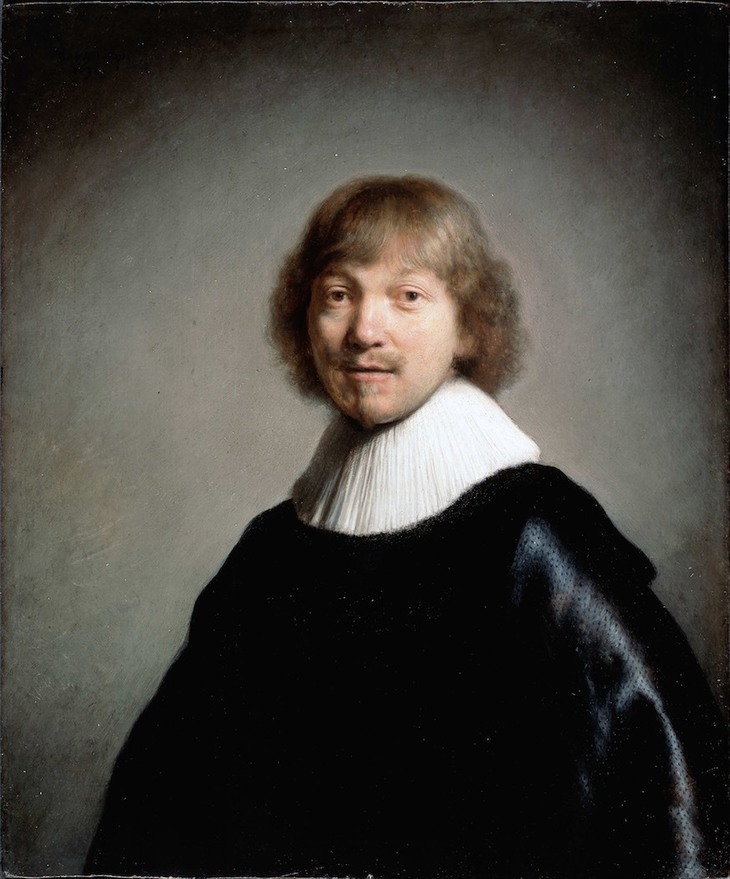Opened in 1817, London's oldest art gallery is the Dulwich Picture Gallery in Southwark, south east London. It's also England's first purpose-built, public art gallery.

1. It's got a unique origin story
The Dulwich Picture Gallery grew out of three separate art collections.

The first, by Elizabethan theatrical entrepreneur Edward Alleyn, included several portraits of English kings and queens. He gave his collection to Dulwich College (the school he founded) when he died. 26 of these pictures are still in the Dulwich collection.
This was added to by actor William Cartwright on his death in 1686; of his 239 pictures, you can still see 77 at Dulwich.
Later, at the turn of the 18th century, two art dealers, Sir Francis Bourgeois and Noel Desenfans, were commissioned with putting together an art collection for the King of Poland.
The pair spent five years trotting around Europe, putting together the finest collection they could; but in 1795, the King was forced to abdicate. Poland had been partitioned so many times by its neighbours that it had ceased to exist.

The duo offered their now glorious 360-strong art collection to the Tsar of Russia and the British government... and were turned down by both. First Desenfans, then Bourgeois died, leaving the collection to Desenfans's widow.
Margaret Desenfans honoured Bourgeois's will, and planned to display the art publicly in a purpose-built gallery, designed by a friend of her late husband, Sir John Soane.
2. It's an architectural marvel
Soane designed Dulwich Picture Gallery as a series of interlocking rooms, lit by overhead skylights. The skylights are designed to light the paintings beneath indirectly.

It sounds simple, but Dulwich Picture Gallery was the first of its kind in the world, and has influenced the design of art galleries across the world ever since.

Looking at the raw brick exterior today, we might not see anything particularly exciting; but this is another innovative (at the time) feature that has been adopted and copied by 20th century art gallery designers all over London, and indeed, the world.
Architect Philip Johnson (1906–2005) said "Soane has taught us how to display paintings".
3. Some of its founders are buried in the gallery
Remember Bourgeois and Mr and Mrs Desenfans?
The threesome credited with founding the gallery are still there: in a unique mausoleum inside the gallery.

All three died before the gallery opened, but their incredible work is beautifully honoured in the building itself.
4. It inspired the telephone box
Giles Gilbert Scott, designer of the classic K2 telephone kiosk, took inspiration from Dulwich Picture Gallery's mausoleum roof.
Soane's 'pendentive' roof, seen on both the Dulwich Picture Gallery and Soane's mausoleum in St Pancras Old Churchyard both inspired Scott's design.
(Scott had just been made trustee of Sir John Soane's Museum when the competition for a new telephone box design was announced.)

Happily, there's a traditional red phone box in the grounds of the gallery, so you can check out the similarities yourself.
5. It houses a world-class collection
Because of the unique nature of its birth, plus some impressive bequests, Dulwich Picture Gallery contains one of the world's finest collections of Old Masters; that is, European painters working before 1800.
There's a rich offering of Dutch, Flemish, French and Italian paintings inside, as well as plenty of British portraits dating from Tudor times to the 19th century.

For example, the collection includes seven pictures by Thomas Gainsborough; nine by Joshua Reynolds; two each by Italians Rafael and Canaletto; 10 by Peter Paul Rubens; and six by Nicolas Poussin.
6. It's had some pretty impressive visitors
Because of its world class collection of Old Masters, Dulwich Picture Gallery has long been a popular destination for art students: John Constable, William Etty, JMW Turner, and even Vincent Van Gogh are said to have visited the gallery.
Dickens gives the gallery a mention in The Pickwick Papers; the protagonist Samuel Pickwick visits the collection during his retirement.

Other notable visitors include HM The Queen Mum, who reopened the gallery in 1953, following bomb damage and refurbishment; and the Queen herself, in 2000, following another big refurbishment.
7. It contains the world's most stolen painting
Rembrandt's small early portrait of Jacob de Gheyn III has been stolen and recovered four times, most recently in 1983.
It's nicknamed the 'takeaway Rembrandt' and is listed in the Guinness Book of Records as the most frequently stolen artwork in the world.

It's 'steal-ability' is probably down to its size: just less than 30cm by 25 cm.
Jacob de Gheyn III has been recovered in some brilliantly mundane places: it was found in a left-luggage office in West Germany in 1986, after being missing for three years; it's been returned anonymously; found on the back of a bicycle; and discovered under a bench in a graveyard in Streatham.
The painting is now guarded by an upgraded security system.
8. You can sleep over in the gallery
Dulwich Picture Gallery hosted its first ever sleepover for kids in 2015, called Pillows and Paintbrushes.

Sleepovers are just one of many special events hosted by the gallery: you can watch films, hear live music, learn to paint and enjoy talks and tours... Find out more here.



